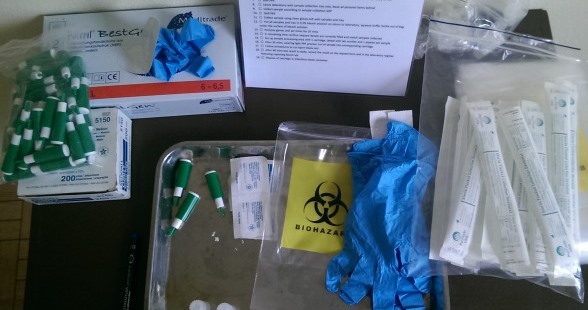New business model for diagnostic flexibility

What is this project?
This project is evaluating the feasibility of developing assays for pandemic pathogens using a semi-open business model approach that brings together diagnostic test/assay developers and platform developers, to support rapid outbreak response.
Why are we working on it?
For a great number of emerging diseases, tests do not exist. Strengthening surveillance, and speeding up development and roll out of new tests in response to potential outbreaks is essential.
However, diseases with small markets – including pathogens with outbreak potential – are challenging for commercial test developers. Bringing an assay to market is costly, and the frequency with which it will be purchased can be unclear, so development of some assays may not be prioritized by the platform technology company.
It can also be challenging for countries to implement many different platforms to address individual diseases.
A comprehensive solution is needed, both to rapidly develop new tests and to maximize the use of platforms that countries have already procured and have experience with, from a training and maintenance perspective.
What does it involve?
A semi-open business model allows development costs to be shared between different companies, and for new assays to be developed quickly in response to new or emerging pathogens.
Our evaluation will explore the feasibility of bringing two commercial entities together to rapidly bring new assays to an existing platform. We are assessing the diagnostic performance of an expanded test menu that ports assays developed by altona Diagnostics onto the Xpert Flex cartridge from Cepheid. The new tests include Lassa fever, Zika virus, dengue fever and chikungunya.
In the case of Lassa fever, we are also conducting a field assessment of the pairing, in Nigeria.
What do we expect to achieve?
This project will demonstrate the feasibility of a new kind of commercial collaboration that could improve testing capacity and improve market sustainability, both of which are urgently needed to support outbreak preparedness in low- and middle-income countries. The field assessment in Nigeria will also result in increased laboratory testing capacity.
If successful, we will have established a new partnership mechanism that will allow for rapid test introduction while ensuring maximal use of platforms already implemented into laboratory networks to shorten the gap between outbreak identification and testing.
What is the timescale?
Menu expansion work to develop assays for the Xpert Flex cartridge will be completed in 2019. Further exploration of the semi-open business model concept is ongoing.
Partners and funding
The menu expansion work brings together altona Diagnostics and Cepheid. For the Lassa fever field assessment we are working with the Bernhard Nocht Institute for Tropical Medicine (BNITM) and the Nigeria Centre for Disease Control (NCDC).
This project is supported by UK aid from the British people.
More information
For more information please contact us.
Quick links

